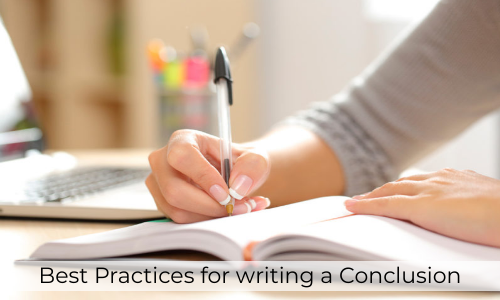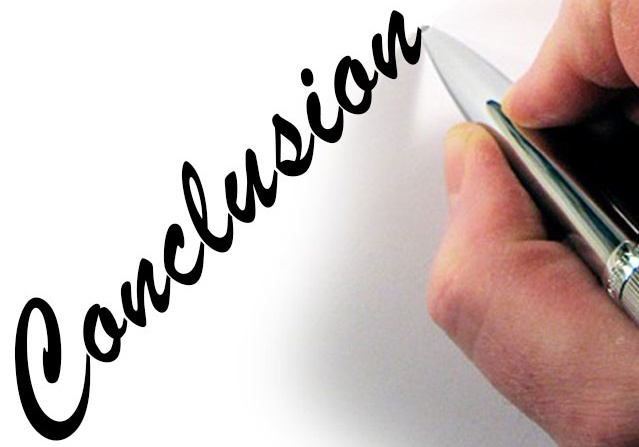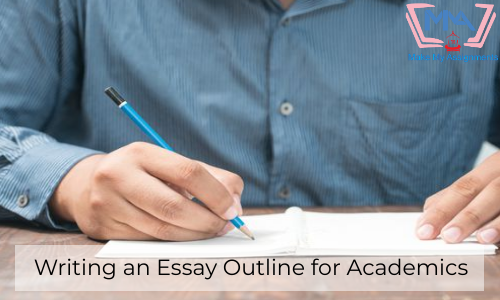
Best practices for writing a Conclusion
Often the most best memories are the one that have a good ending. When you take a look at your memories that are the most precious ones to you – they end on a really good note. These memories urge you to return back to the time when you actually experienced it; giving you the same level of pleasure, and indulging you in the search of sensation. The same happens when you provide a great conclusion or say ending to your assignment or essay.
Readers always expect the ending to leave a good mark and impression. So as a writer, it’s your responsibility to construct the content in a manner that satisfies the readers and awakens interest and empathy with what you have just exposed.
We often commit the same mistake of creating a good impression, in the beginning, writing a good plot in the middle part and completely forgetting about the good ending. It is like we put so many efforts in the beginning itself to expose our ideas that we fail to close it with a snap. This is the reason as to why there is a need to be aware of writing a good conclusion and knowing its worth amidst the content. Take a look at some of the advice that we’ve mentioned here that will help you to write a good conclusion.
Writing a Conclusion
Conclusions have been wrongly understood till date as the summary of everything that you just wrote, but it is not! It is not that you repeat your ideas and text again and again in conclusion, but rather you should focus on emphasizing the main idea or point of your writing. In other words, you could say that a conclusion gives you the right opportunity to leave a memorable imprint on your readers. The main task here is that the conclusion should merely focus on highlighting the importance of the content you just wrote and further creating interest in the mind of readers regarding future approaches and context.
When the topic comes to an end, you realize the writing of conclusion at that point of time. At this stage, you end with your search of information and writing certain facts regarding it, and move towards demonstrating your own views and arguments.
The conclusion part of your assignment usually gets constructed from three stages- Purpose, Problem and Possibility.
Purpose
Being a writer, you should always ensure that the purpose of your assignment is well explained to your reader. So when you begin writing a conclusion, make sure that you clarify the doubts regarding the matter addressed in your context in the minds of readers. Try to explain the main points again in conclusion, and the techniques behind solving the problem. This makes the reader aware of the purpose of your assignment, in case he forgets about it. The reader gets the opportunity to learn what was the point of your content, or what were the most important points that you tried to approach in your text.
Problem
Once you have covered writing all the main points in your conclusion, you must show the readers that your content offers a real solution to the problem. Focus on emphasizing the main idea of your text; what you actually wanted to prove with the help of your text.
Possibility
Your conclusion should always be written in a manner that makes the reader feel go deeper in the context and embarks great interest in them. Writing a conclusion gives you the opportunity to build the knowledge indefinitely that your text contributes to an even more greater aspect in the future. You can simply do this by inviting your readers to wait for the next part of your writing or guide them towards the other content that you have created related to the same topic so that the reader can learn more about the subject and gain extensible knowledge. You can invite your readers to contribute towards the aspect of knowledge in the form of some commentary and can further verify whether the thing explained is learned well on the part of readers.
Length of the Conclusion
How long should your conclusion be? Well, the length of your conclusion majorly depends on the type of text that you are targeting, the type of audience involved, and the intensity of the information that you are providing. Usually, two paragraphs are always considered sufficient enough to be included in your conclusion. In case of an assignment, essay, thesis or any other type of in-depth study, it is appropriate to conclude the ending part between 1 to 4 pages.
With the help of these above-mentioned points, we can easily draw attention towards our conclusion part in an assignment, which will certainly help the readers to understand the entire context and findings related to our text.





